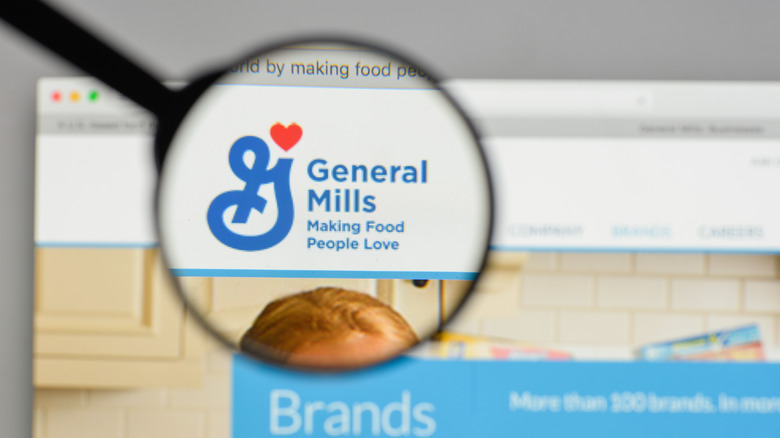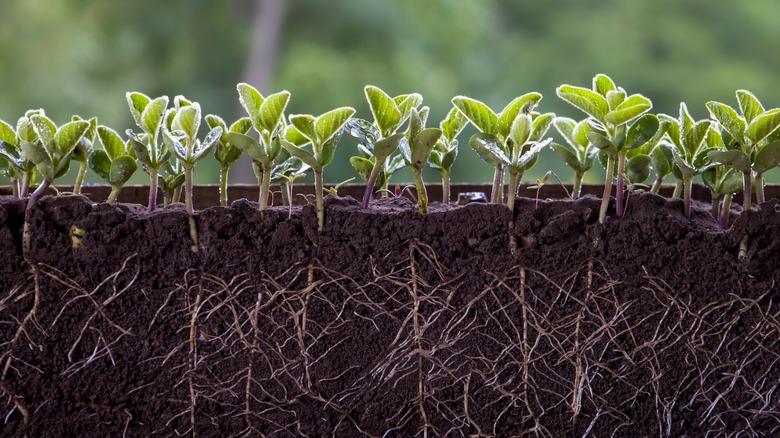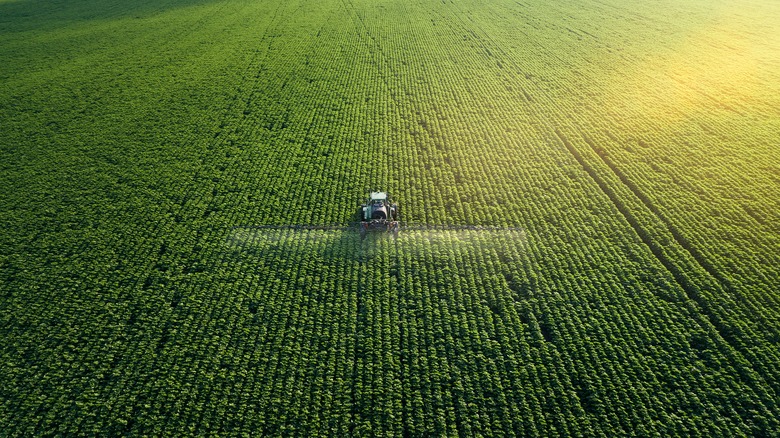General Mills Sees Regenerative Agriculture As A Key To Reaching Climate Goals
Sustainable branding has emerged as a major market trend in recent years — so much so that the term "greenwashing" arose to name its pitfalls. But, judging by General Mills' newly-released 2023 Global Responsibility Report, the food giant is walking the walk. Per the report, Generals Mills is focusing its attention on regenerative farming as the future of the company, prioritizing farmers and valuing their knowledge of the land. This newfound focus comes as part of General Mills' initiative to reduce its net carbon emissions by 30% by 2030. Currently, 92% of the company's packaging can be recycled or reused, and the energy that powers the company's operations is 87% renewable. These changes are impressive, but they're only the beginning of a much larger shift for General Mills.
Sustainable America defines regenerative farming as "agricultural practices that focus on the health of the ecological system as a whole, not solely on high production yields of crops." In short, regenerative agriculture places the health and longevity of the land in the spotlight. Capital is secondary. Common regenerative agricultural practices include crop rotation and diversity, cover cropping, composting, waste reduction, and even regulated livestock pasturing. By playing the long game, the practice "regenerates" natural nutrients, bacteria, and fungi in the soil as well as increases the soil's ability to hold water. Regenerative agriculture also minimizes or eliminates artificial chemical fertilizers, pesticides, and artificial growth hormones, thereby creating higher-quality produce and perpetuating local biodiversity.
A holistic approach
According to General Mills' chief sustainability officer Mary Jane Melendez, the company regards regenerative agriculture as a holistic philosophy centered around farming with future generations in mind. "It's not just about strengthening one key ingredient, but about looking at the farm as a living ecosystem and looking to maximize its potential," explains Melendez, via Food Dive. That means a focus on small-scale businesses and family farms — and by extension, realistically stimulating local economies.
The philosophy necessitates a departure from an immediate-gratification consumption mindset. In his 1972 opus "Small is Beautiful: Economics as if People Mattered," E. F. Schumacher wrote, "Modern man does not experience himself as a part of nature but as an outside force destined to dominate and conquer it. He even talks of a battle with nature, forgetting that, if he won the battle, he would find himself on the losing side." Indeed, some might argue that this summation is even more urgent now than when it was first written half a century ago and has already started playing out in reality. For instance, recent years' GMO research has done a number on Hawaii's local agriculture as large-scale foreign organizations have compromised the longevity of the soil and caused ecological damage from which it will take years to recover. Regenerative farming is largely the antithesis of this approach, more closely mirroring indigenous agricultural practices pre-industrial era.
General Mills may form part of an industry-wide effort
Some critics are skeptical of "regenerative agriculture" on the basis that the concept lacks a concrete definition. The counterposition would be that regenerative agriculture transcends a one-size-fits-all image because different geographical regions exist in different climate zones. What works for farmland in the Pacific Northwest won't work in the humid Southeast, and different farms are going to look very different from one another. But, Jay Watson (General Mills' senior leader of global impact initiatives) says that regenerative agriculture's inability to fit a clean-cut definition is part of its appeal. "We think some of the beauty of regenerative agriculture, and regeneration more broadly, is that it is more of a process and a spectrum," says Watson, via Food Dive. "So it's kind of hard to put into a box."
All its supposed ambiguity hasn't stopped other major food manufacturers from starting the trek toward regenerative agriculture. In 2021 — the same year that Forbes called the practice "the next trend in food retailing" — PepsiCo announced plans to transition 7 million acres of its farmland to entirely regenerative agricultural practices by 2030. Walmart is implementing the practice across 30 million acres of Midwest farmland in collaboration with 30,000 farms. General Mills expanded to 120,700 acres of regenerative farmland in 2022 alone, and the company's latest efforts may add huge momentum to this movement.


